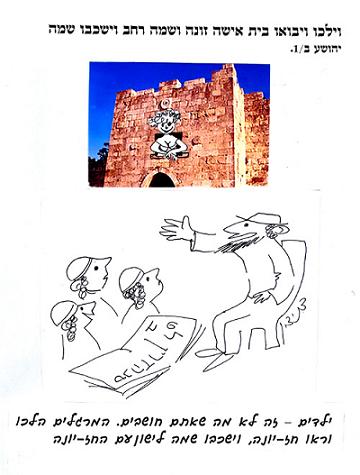
After Ahab, king of Israel, died in battle, it is written “A shout [rinah] went throughout the army… So the king died, and was brought to Samaria. And they buried the king in Samaria…and the dogs licked up his blood while the harlots bathed, according to the word of the Lord which He had spoken” (I Kings 22:36-38). Because it says that the rinah went through the camp, it implies, said one scholar, that one should rejoice when evil-doers such as Ahab, king of Israel, die. He brought support for this conclusion from Proverbs: “When the wicked perish, there is jubilation” (Proverbs 11:10) or, as he put it, “When Ahab the son of Omri died there was rejoicing.” The scholars asked: Does the holy One, blessed be He, rejoice when evil-doers die? Did not the sages teach that the holy One, blessed be He, is not happy when the evil fall? Answer: G-d Himself is not happy when evil-doers fall, but people are not only permitted to rejoice, G-d Himself causes them to rejoice. The scholars went on to explain the verse which describes the death of Ahab: “While the harlots bathed.” It seems to mean that the harlots washed themselves in Ahab’s blood, but the scholars explained it a different way. According to one scholar the word hazonot [the harlots] is to be interpreted as chezyonot, visions, so that the verse would mean “two visions became clear and were fulfilled.” According to a different student the word should be used in its plain meaning, but the harlots were pictures of harlots. King Ahab was sexually frigid and his wife, Jezebel, wanted to heat him up, so she made two pictures of harlots and placed them on his carriage so he would see them and become lustful. When Ahab died his blood splashed on the pictures of the harlots and this is what the verse meant in saying that the harlots were washed with his blood.
(Babylonian Talmud, Tractate Sanhedrin 39b)
